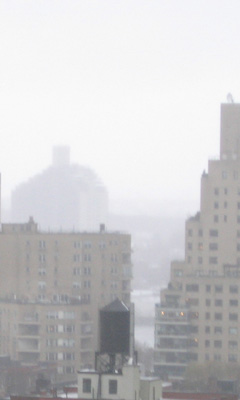Austere but Serene
In the middle of the holiday season, it is very still here at home. The atmosphere is austere but serene, with everything more or less quietly in its place. In a few days, I’ll buy a tree, and re-arrange the living room in order to put it up; that will inaugurate the grand interruption that Kathleen and I have been evading for some time. We haven’t “done” Christmas since I don’t know when — three, four years ago? The interesting thing is that, even though I am “doing” Christmas this year, it’s with a minimum of fuss. I’ve sent out about half of the Christmas cards. I’ve ordered the roast for Christmas dinner — and the bûche de Noël, too, now I think of it. But I don’t feel harried or rushed. Tired yesterday morning, I could take the day off and read. If I hadn’t been so sleepy, I’d have appreciate the luxury more. But I did appreciate it.
At four or so, I realized that I had to watch a video that was due back in the evening. Curious, how long it took to rent it. Last spring, Kathleen and I heard Jordi Savall and friends at the museum play music by, among others, Marin Marais. Not having any CDs at home, I ordered a few. I came across them just the other day, still unopened. They reminded me that I wanted to have another look at Tous les matins du monde, Alain Corneau’s 1991 film about Marais (more or less), starring both Depardieus, Jean-Pierre Marielle, and Anne Brochet. Which I finally got round to picking up on Sunday.
What a Protestant movie, I thought — in Seventeenth-Century French terms, that is, where “Protestant” signifies a resistance to extravagant courtly grandeur and a preference for black garments and underfurnished interiors. Somebody else’s idea, in short, of “serene but austere.”

